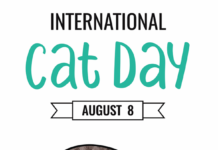Q. I have a 3-year-old male domestic shorthaired cat who has been diagnosed with Feline Hyperesthesia Syndrome [believed to be an obsessive condition or seizure, involving excessive scratching, vocalization, grooming, running about and skin rippling on the back], and I have been giving him holistic remedies to treat him. I am dismayed by the relative lack of acceptance of alternative medicine by the veterinary medical profession. What are your thoughts on this issue?
A. I understand your feelings about this, and you are not alone in believing that alternative medical practices have received less than blanket acceptance by the veterinary medical (or human medical, for that matter) profession. This is likely due to a number of factors, including historical educational tendencies, unfamiliarity and, in many cases, a lack of rigorous scientific demonstration of benefit of alternative medical therapies. I can give you my thoughts on the matter, for whatever they are worth!
Alternative medicine may be defined as a group of healing therapies that fall outside “conventional” medical practices. This definition is a loose one, as what is accepted as “conventional” may vary from place to place. The ambiguity of this definition is complicated by the fact that the origin of many of these practices is often antique and exotic. I think that part of the problem with acceptance of some of these practices is a lack of familiarity, which naturally causes people to feel uncomfortable.
One point about alternative medicine that understandably makes some people uncomfortable is that in many, if not most, cases, there is a relative lack of scientific proof that these therapies work. This does not necessarily mean that they do not provide a benefit to patients, but rather that a benefit has not been definitively demonstrated.
Demonstration of a therapy’s benefit requires rigorous testing using the scientific method to obtain objective, measurable data regarding its effects. Without this rigorous testing, we are left with anecdotal reports of how these therapies affect patients, and these reports may be subject to biases that obscure the true benefit (or lack thereof) of the therapy in question.
In my view, it would not be surprising if some percentage of alternative therapies is beneficial. For example, many of these therapies involve the use of plant-based materials. Given the fact that many “conventional” therapies (i.e., drugs) have their origin in plant-based materials, it is not outrageous to think that some of these non-traditional therapies may be beneficial. Given the long history of the use of some of these therapies, I think that it would be closed minded to ignore these long-standing experiences; and that at the very least, such a breadth of experience should engender a desire to scientifically investigate their potential benefits.
An important thing to consider is that it is possible that some alternative medical practices may be harmful to patients in some situations. When medical professionals make decisions regarding therapy for their patients, they compare the risk of a given therapy with its potential benefit. The ideal therapy would provide benefit without any risk to the patient. The antithesis of this would be a therapy that provides no benefit and is harmful to the patient. If a therapy provides neither benefit nor risk, its use may result in wasted effort and undue financial expense. Without objectively knowing what these potential benefits and risks are, this comparison is problematic.
Given the lack of scientific investigation of many alternative therapies, many clinicians do not feel comfortable recommending their use. It is important to point out, though, that with increased investigation of alternative therapies, we may discover that some, if not many, are beneficial. If this is the case, these therapies may then become more accepted by the “conventional” medical establishment. It is encouraging to know that studies of the effects of alternative therapies are underway in many laboratories, and I think it’s important to keep our minds open when interpreting the results of these important studies.
I hope my two cents has been helpful, and I look forward (as I am sure you do) to what the future holds as we carefully investigate the potential benefits of alternative medical therapy.
—Best regards, Elizabeth ❖



